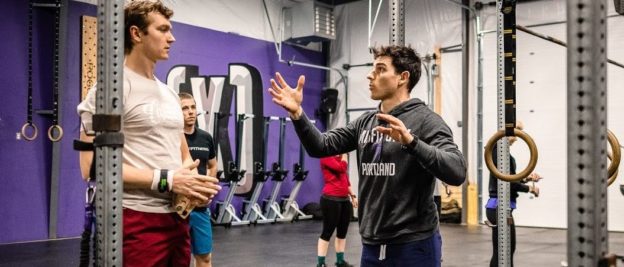
Owners: Are You Developing Your Coaches? Part II
If you haven’t checked out Part I yet, click HERE!
In this 2-part series we discuss the importance of owners and head coaches taking the time and effort to develop their subordinate or co-coaches. The growth of CrossFit and the affiliate model is inexorably allowing coaches and owners to become, if they haven’t already, true professionals whose sole purpose is the teaching and educating of health and fitness. Most coaches think of communicating this information to paying members as the starting point for success, and this may be true at first. However, in order to sustain the initial excitement a new coach has and the value he/she provides to your members, owners and head coaches must assume the responsibility of developing these coaches further. It is my contention that investing heavily in your coaches will result in a someone who is much more likely to treat his job as a profession and take ownership of his roles and responsibilities. If you haven’t read Part I yet, I recommend doing so HERE. We pick up where we left off below:
Educate. Encourage your coaches to seek continuing education. If your revenue stream is large enough that you can send a coach to a specialty course, do it! It shows you are looking out for them, provides tremendous value to the coach, and adds a capability to your gym which in turn, provides value to your members. Not there yet? Assign a weekly reading assignment from the CrossFit Journal or a pertinent scientific study you found online and have a group discussion a few days later. Maybe even have each of your coaches teach your staff one of the nine foundational movements. Brilliance in the basics will go a long way with members and coaches alike.
Mentor. Mentor your coaches individually on a monthly to quarterly basis. Everything discussed above should be consolidated and discussed in a pre-arranged, 1-on-1 setting in a quiet office area so as to preserve the professionalism of the meeting. Topics of conversations should be: things he/she is doing well, things that can be improved upon, short and long term goals, and then give the coach an opportunity to ask any questions or voice any concerns that you may not be aware of. It may be beneficial to provide a print-out (something simple is perfectly fine) with the things you as the owner want to address.
Ultimately, a coach will work as hard for the members as you work for your coaches. Providing sound leadership from the top will permeate down to the members creating a strong, cohesive affiliate.
Written by Hunter Wood



Responses